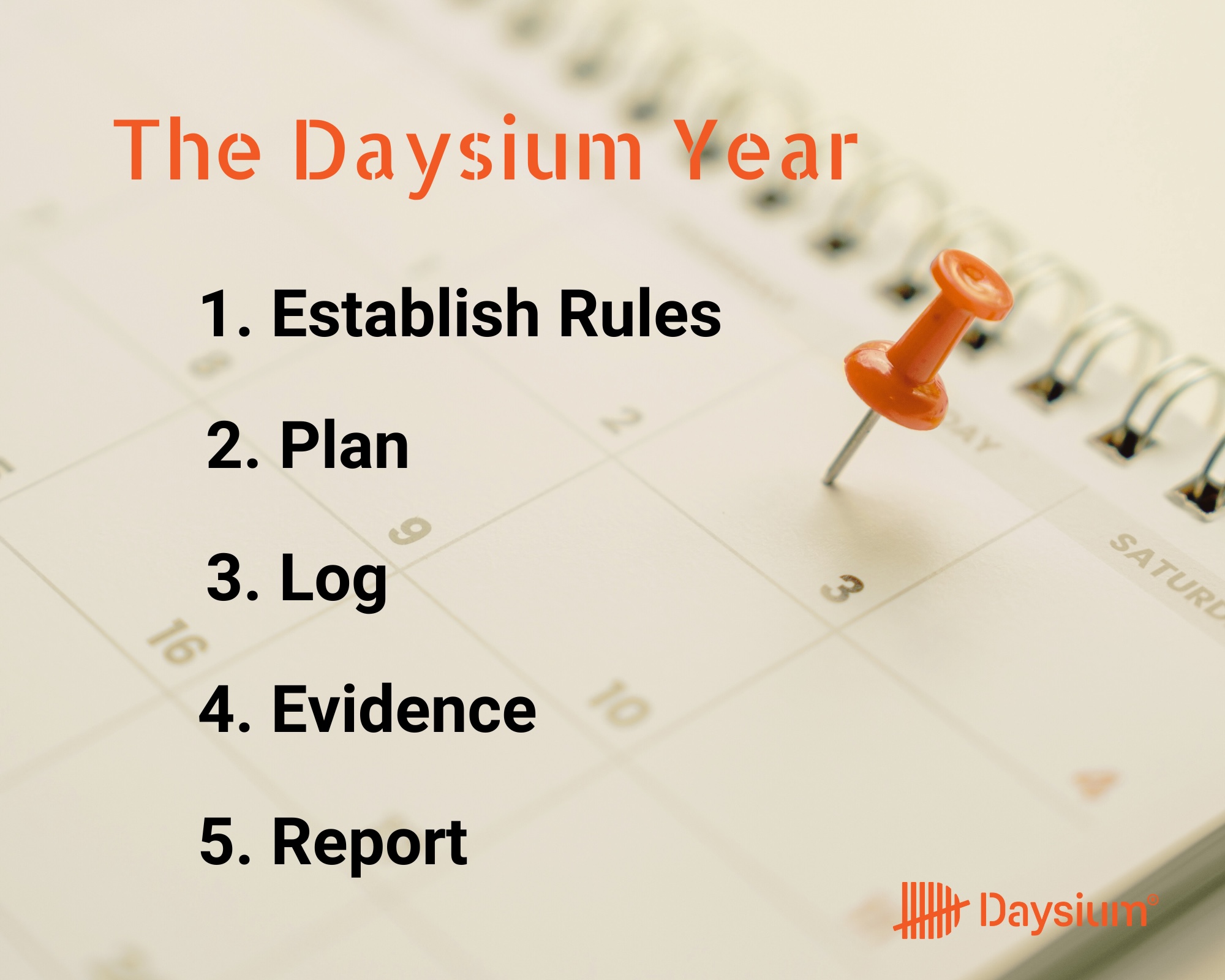The Daysium Year is a powerful way to establish a process to protect you from non-compliance. However, tax investigations can happen to anyone. In 2022, the number of HMRC investigations that yielded no additional tax increased by 13% in the UK. Perfect compliance alone isn’t enough to prevent an enquiry.
The good news is that the Daysium method can reduce the scope and length of a tax enquiry. Let’s consider this by examining three case studies and our solutions to the three problems of traditional methods of tax residency compliance.
1. Creating a Precision Day Counting and Record-keeping System
As the above example of the Daysium Year shows, the strength of tax residency compliance lies in the robustness of the process around it. If you set a framework that makes day counting automated, frictionless and tailored to your needs, then you’re already on the right path.
Furthermore, the process needs to include an element of aligning day counting with record-keeping. As our previous look at a case study showed, some tax investigations are based on the quality of that data.
In one example UK court case, HMRC challenged a decision that deemed a taxpayer a non-resident of the UK after a First-tier Tribunal (FTT). In this case, the Appellant claimed non-UK residency based on exceptional circumstances that required them to stay in the UK beyond their allowed day count.
One element in the case was the lack of supporting documentation or insufficient records. With a clearly defined process for counting days and generating supporting evidence, it would have been easier to showcase why some travel days may be considered exceptional.
2. Automating Tax Residency Compliance
Many tax residency compliance cases require clear records of days spent in particular jurisdictions. In some instances, the data has looked back almost a decade, as one case study from Ireland shows. In this case, the Appellant had to demonstrate his non-tax residency in Ireland between 2002 and 2006, with the court case taking place almost a decade later.
By automating how you count your days, you can reduce the risk of errors and day-counting errors. You can also ensure that the rules under which you count your days are relevant and accurate. The ability to ensure you’re following the rules and have our companion app calculate the days for you reduce the guesswork around day counting.
3. Providing Real-time Access to Day Counting
In a recent case in the UK, the Appellant argued that they weren’t UK tax resident due to full-time work abroad. However, the Upper-tier Tribunal (UT) found that full-time work abroad wasn’t a definitive indicator of a break from UK residence, supporting an earlier decision by FTT.
For many, the problem is that they don’t have a day-counting process that considers their specific circumstances. Furthermore, the problem can be exaggerated due to the lack of a real-time view of travel days.
With the Daysium platform, you establish and set the parameters that apply to you. Once these rules are in place, you can effortlessly monitor them in the palm of your hand. Our Timeline shows your exact day counts in a specific jurisdiction, including any exceptional or ‘work’ days. This reduces the risk of overstaying, and you have the confidence to plan future travels.
“We recommend, therefore, that you let Daysium keep track of your day counts and alert you when thresholds are about to be breached.”
– Laurence Hodgens, Director, Hodgens Global, Dubai






